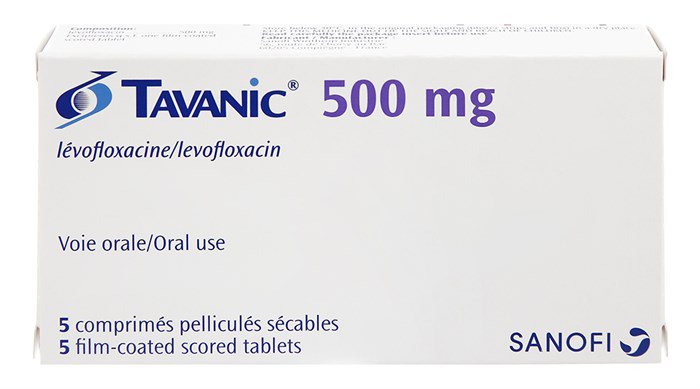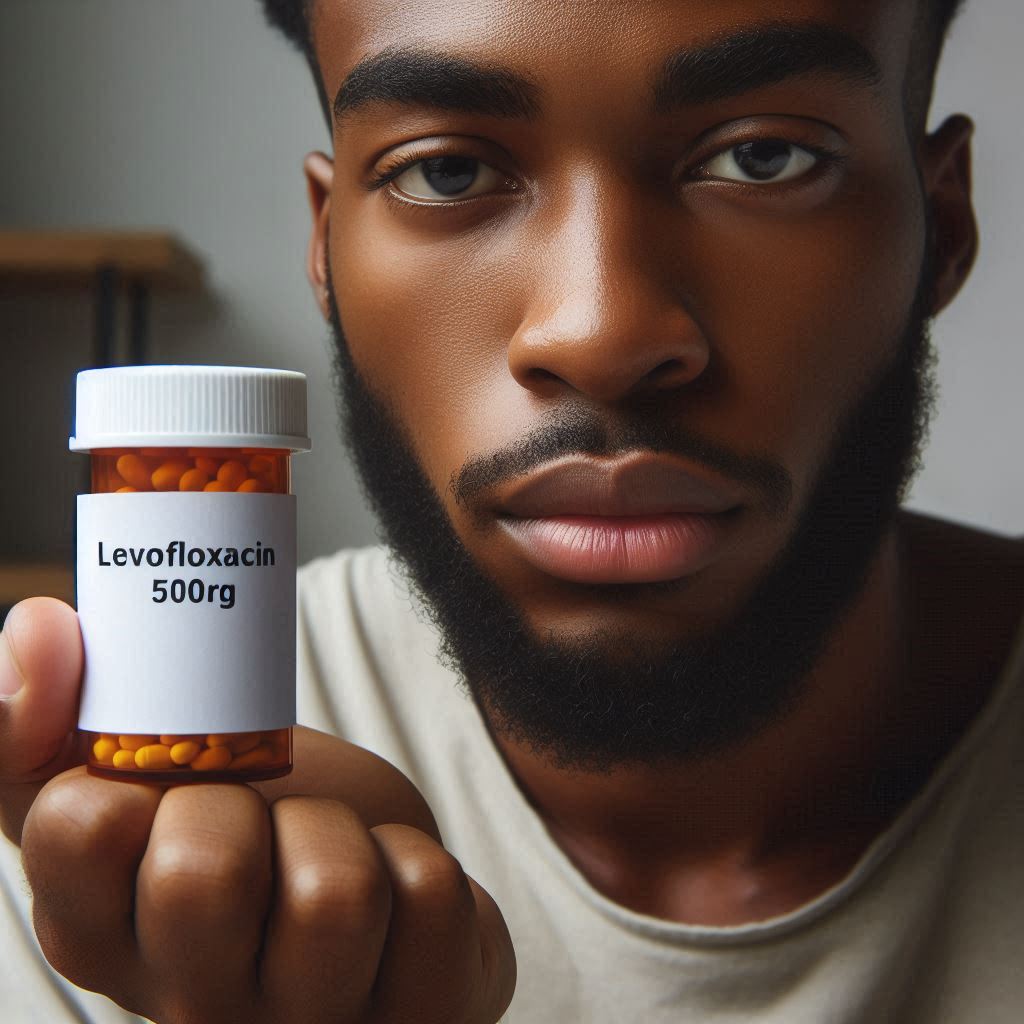10 Levofloxacin (Levaquin) Side Effects You Should Know About
Written by Dovie Volkman | Reviewed by Uche Ruth
Updated on June 12, 2024
Key Takeaways:
- Levofloxacin (Levaquin) is a fluoroquinolone antibiotic used to treat bacterial infections. It works well to treat infections in the lungs, skin, and urinary tract.
- Mild levofloxacin side effects include nausea, headaches, and sun sensitivity. Most of the time, they can be easily managed at home and will go away once you’ve finished levofloxacin treatment.
- It’s possible for levofloxacin to cause more serious side effects, such as tendon and nerve issues. It may even contribute to life-threatening heart and liver problems. Talk to your medical care team to see if you might be at risk for serious levofloxacin side effects.
Table of Contents
Overview
Levofloxacin (Levaquin) is a fluoroquinolone (“quinolone”) antibiotic used to treat various bacterial infections. It works well to treat infections in the lungs, skin, and urinary tract. Levofloxacin is also used for infections that are tough to treat, such as in your bones or kidneys.
Although levofloxacin is prescribed for a wide range of infections, it should be used carefully. That’s because like all medications, it can cause side effects. And some of them, often referred to as fluoroquinolone toxicity, can be serious.
Levofloxacin side effects at a glance
Levofloxacin side effects range from mild issues to rare reactions that can be serious. Listed below are the side effects associated with levofloxacin in clinical studies. Keep in mind that this isn’t a complete list. You should contact your medical care team about any side effects that appear while you’re taking levofloxacin.
Common side effects:
- Nausea and vomiting
- Headache
- Diarrhea
- Insomnia
- Sun sensitivity
- Constipation
- Dizziness
Rare but serious side effects:
- Clostridioides difficile diarrhea
- Tendon problems
- Muscle pain
- Neuropathy (nerve damage)
- Liver damage
- Long QT syndrome (an irregular heart rhythm)
- Damage to the aorta (the largest artery in the body)
- Severe low blood sugar (hypoglycemia)
- Confusion
- Seizures
- Agitation
- Hallucinations
Let’s take a look at 10 possible levofloxacin side effects in more detail, including how to manage them and when to contact a medical professional.
1. Nausea and vomiting
Nausea is one of the more common levofloxacin side effects. And nausea and vomiting tend to go hand in hand.
Taking levofloxacin tablets with food may help prevent nausea or vomiting. You may want to use antacids to help settle your stomach, but you shouldn’t take them within 2 hours of your levofloxacin dose. Antacids that contain magnesium or aluminum can prevent your body from absorbing levofloxacin.
If you vomit soon after taking levofloxacin, it’s best to contact your prescriber. They can help you decide if you should take another dose. And if your nausea or vomiting worsens or is severe, be sure to let your medical care team know.
2. Headache
Headaches are another common side effect of levofloxacin. Up to 6% of people taking levofloxacin in clinical trials experienced a headache. The reason levofloxacin causes headaches is not well understood.
There are some easy ways to help manage headache pain at home. Staying hydrated and getting plenty of sleep might help. You can also try applying heat or a cool compress to painful areas. Over-the-counter pain relievers such as acetaminophen (Tylenol), may also help manage headache pain.
If your headaches get worse or don’t go away, contact your healthcare team. They may recommend other treatment options or make changes to your medications.
3. Diarrhea
Levofloxacin can also cause diarrhea. Diarrhea is a common problem caused by most antibiotics. It may even occur after finishing the medication.
You can try using the BRAT diet for a few days to manage mild diarrhea. “BRAT” stands for bananas, rice, applesauce, and toast. These foods are easy on your stomach and can help to make your stools more firm. Hydration is also important, since diarrhea can cause you to lose fluid from your body.
Probiotics may also be helpful to treat or prevent diarrhea from levofloxacin. But there’s not a lot of data about which probiotics are best.
In rare cases, diarrhea can become severe, or even dangerous. Taking levofloxacin can lead to an infectious diarrhea called Clostridioides difficile (C.diff) colitis. Along with severe diarrhea, you may also notice a fever or stomach pain if you have C.diff. Be sure to contact a medical professional right away if you have these symptoms.
4. Trouble sleeping
It’s possible for levofloxacin to cause insomnia, but it’s not clear why this happens. Insomnia is a common sleep disorder that makes it hard to fall or stay asleep. This unpleasant side effect can impact your quality of life.
If you’re taking levofloxacin once daily, taking it in the morning may help with this side effect. You can also improve the quality of your sleep by practicing good sleep hygiene. Take steps like turning off devices and keeping your room dark, cool, and quiet. And try to avoid alcohol and caffeine before bedtime.
Let your prescriber know if your insomnia is severe. They may suggest other treatment options or a change to your antibiotic if necessary.
5. Sun sensitivity
Sun sensitivity has been reported in people taking levofloxacin. This means you’re more likely to get a sunburn when taking it. And sunburns can also be worse than usual if they happen. This side effect is temporary, and should resolve once you’ve finished your treatment.
You can avoid this side effect by limiting direct sun exposure while taking levofloxacin, even during winter months. Wear protective clothing, including a hat and sunglasses to protect your face and neck. Apply sunscreen (SPF 30 or higher) to exposed skin. And try to rest indoors or in shaded areas during peak sun hours of the day.
6. Tendon problems
Levofloxacin can raise your risk of serious tendon problems. This includes inflammation of the tendon (tendonitis) or tearing. Tendon tearing is most likely to occur in the Achilles tendon above your heel. But other tendons can be affected, as well. Tendon problems are possible up to several months after stopping levofloxacin.
You might be at higher risk for tendon problems if you:
- Perform strenuous activities
- Are over the age of 60
- Take corticosteroids (like prednisone)
- Have a history of kidney or heart transplant
- Have a history of tendon-related problems
The effects on your tendon can be a serious health issue. If you have pain or swelling in a tendon while taking levofloxacin, contact your prescriber right away. They’ll likely have you stop taking it.
7. Liver damage
Liver damage is a rare but serious side effect of taking levofloxacin. For some people, the damage could be enough to cause liver failure or even death.
This side effect is more common in people aged 65 years and over. Get medical attention right away if you notice signs of liver damage, such as:
- Stomach swelling or pain
- Fatigue
- Yellowing of the skin or the whites of your eyes (jaundice)
- Light-colored stools
- Dark or brown urine
8. Effects on the brain and nerves
Levofloxacin has been reported to raise the risk of problems with your brain, such dizziness, confusion, or seizures. It can also effect your mood, causing agitation, suicidal thoughts, or even hallucinations.
It’s also possible for levofloxacin to cause neuropathy (nerve damage). You may notice burning or tingling in your arms and legs. And in some cases, the damage to nerves can be permanent.
Effects on your brain or nervous system are serious and should be managed by a medical professional. Contact a medical professional if you notice any of the symptoms mentioned.
If you or someone you know is having thoughts of suicide, you’re not alone and help is available. Call the National Suicide Prevention Lifeline at 1-800-273-8255, or text HOME to 741-741 to reach the Crisis Text Line.
9. Irregular heartbeat
Although rare, levofloxacin may contribute to a serious type of heart rhythm problem called QT prolongation. QT prolongation may cause a life-threatening irregular heartbeat.
It’s best to talk to your healthcare team before taking levofloxacin if you have a known history of long QT syndrome or other heart problems. Taking certain other medications, such as amiodarone (Pacerone), can also contribute to this risk.
If you feel faint, have shortness of breath, or experience blurry vision while taking levofloxacin, seek medical care right away.
10. Blood vessel damage
Rarely, levofloxacin can cause damage to the aorta, the largest blood vessel in the body. The risk is higher for people aged 65 years and over.
This side effect is rare but can be life-threatening. Symptoms of damage to the aorta include sudden or severe pain in the chest, back, or stomach. If you’ve recently taken levofloxacin and notice any of these symptoms, seek emergency medical care immediately.
Is it safe to take levofloxacin?
Yes, levofloxacin is considered safe when it’s prescribed and taken properly. It only causes mild side effects for most people taking it.
Serious levofloxacin side effects related to fluoroquinolone toxicity are rare. But there are some steps you can take to reduce your risk, such as:
- Avoiding intense exercise while you’re taking levofloxacin. This helps lessen the risk of muscle or tendon issues. It’s a good idea to let your medical team know if you’re an athlete or unable to avoid strenuous activity. They may recommend a different antibiotic.
- Only taking levofloxacin when prescribed and as directed. You shouldn’t take someone else’s antibiotic, and you shouldn’t take levofloxacin for a different infection other than what it’s prescribed for.
- Reviewing your medication list with your medical team before taking levofloxacin. Some drug interactions may make serious side effects more likely.
- Making sure your medical team is aware of any health conditions you have. Some conditions may make you more prone to serious side effects.
Medications & Collections
These drugs are vital for controlling and improving the health of individuals with this condition. They include both preventive and symptomatic treatments.

Tavanic 500mg
₦24,300

Levofloxacin 500mg
₦7,500
